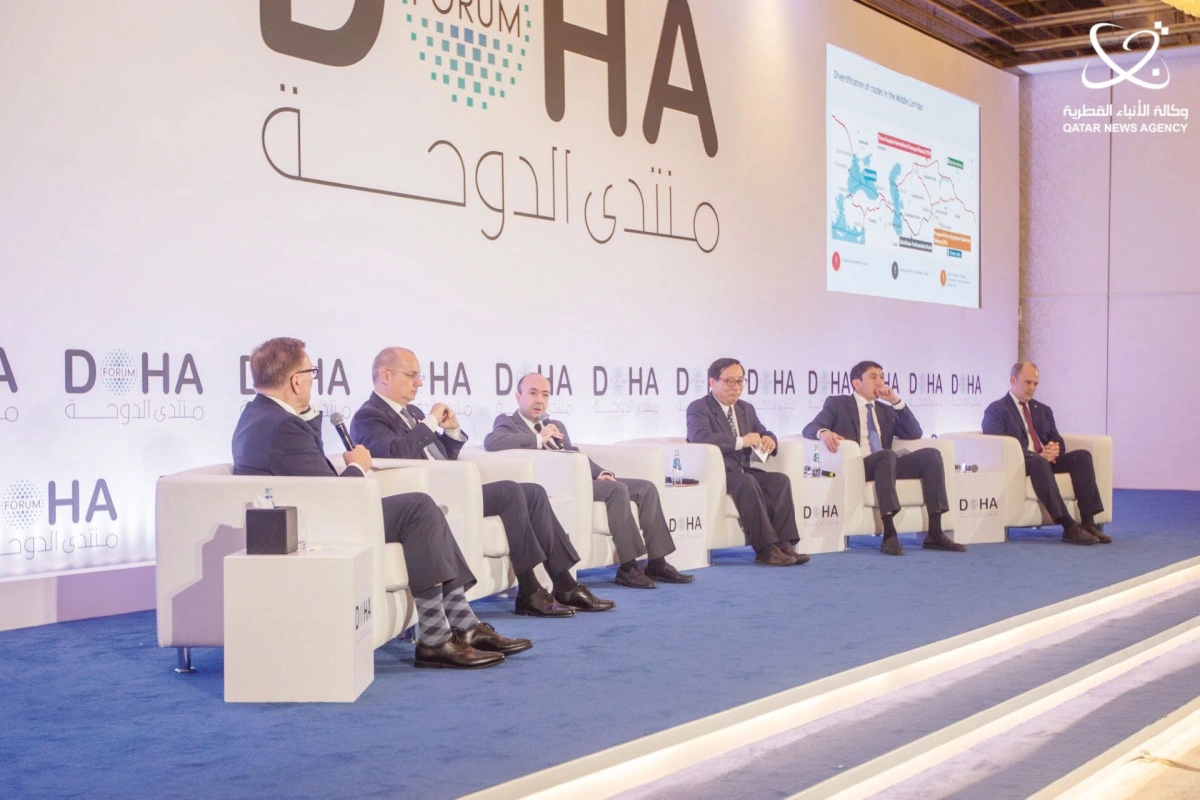
Industry leaders accentuated that the region is set to become a key player in the global energy security competition, potentially reshaping geopolitical dynamics and power structures.
Photo: thepeninsulaqatar.com
The two-day Doha Forum 2024, which concluded yesterday, brought together experts to discuss shared challenges and opportunities in energy security across the Central Asian region. The forum provided a platform for dialogue on how to enhance regional cooperation, address energy sustainability, and navigate the evolving global energy landscape, The Caspian Post reports citing foreign media.
The panel entitled ‘Central Asia and the New Era of Global Energy Security’, was attended by the Minister for Europe and Foreign Affairs of Albania, H E Igli Hasani; Deputy Minister of Foreign Affairs of Azerbaijan, H E Fariz Rzayev; President of Center for China and Globalisation, Victor Gao; Chairman, KAZENERGY Association, Magzum Mirzagaliyev; and Senior Fellow at The Fletcher School Tufts University, Joshua Lincoln.
Industry leaders accentuated that the region is set to become a key player in the global energy security competition, potentially reshaping geopolitical dynamics and power structures.
They highlighted that, with its vast natural resources and strategic location, Central Asia’s rise as a regional power would extend beyond just the energy sector, involving crucial factors related to regional stability, risks, and political influence.
Central Asia, they noted, is vital to several major economies, particularly China and Europe.
China views the region as a key supplier of raw materials and a significant market for its products.
As a result, China has become increasingly involved in the region’s energy policies, especially through the gradual development of oil and gas sectors in Central Asian countries like
Kazakhstan. This involvement is part of China’s strategy to diversify energy sources and prioritize regions like Central Asia.
The participants also emphasised that Central Asia will play a major role in global energy security, especially for Europe, due to its rich resources in hydrocarbons and essential materials for the energy transition.
This will require the European Union to invest more in energy infrastructure in the region and contribute to its stability and economic growth.
Minister for Europe and Foreign Affairs of Albania, H E Igli Hasani noted that global energy security is one of the key markets in the region, and conversations and partnerships with leading entities are important to strengthen the realm.
On the other hand, the Deputy Minister of Foreign Affairs of Azerbaijan, H E Fariz Rzayev stressed “We have to impact together with our friends and partners in the neighborhood and so I’m looking forward to exploring these resources.
He said that the LNG industry in Azerbaijan has continued to progress by partnering with numerous energy projects including ‘Southern Gas Corridor’.
The Chairman of KAZENERGY Association, Magzum Mirzagaliyev remarked “Our major markets include China and Europe and countries in the Southeast Asia. And I think that we all are now witnessing it and living in this challenging time, which requires the increased production of energy as well as the climate change issues are becoming so important, whatever it costs.”
At the end of the session, the participants raised questions on how this role could reshape Central Asian countries’ relationships with major powers like China, Russia, and the European Union, and how these countries could maximize the impact of this opportunity.
Share on social media